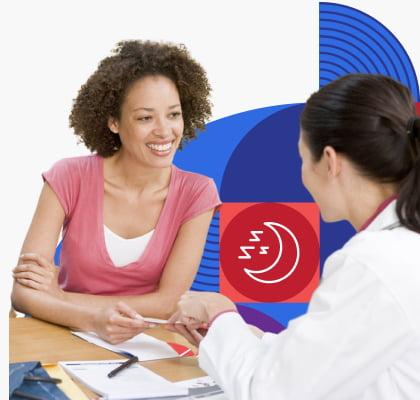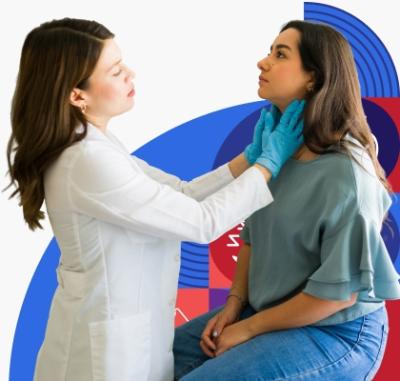Doctor Visits
Genetic Testing to Learn About Your Risk of Breast and Ovarian Cancer: Questions for the Doctor

If your family has a history of breast or ovarian cancer, it’s a good idea to discuss it with your doctor.
That’s because mutations (changes) in genes can run in families. If you were born with mutations in certain genes — including the BRCA1 and BRCA2 genes — you’re at higher risk of developing breast and ovarian cancer. You may also be at higher risk of developing several other types of cancer.
What is genetic testing and counseling?
Genetic testing and counseling and testing can help you understand your risk of developing these cancers — or getting them again.
- Genetic testing can show whether you were born with certain gene mutations that raise your risk of cancer.
- Genetic counseling is when a trained health professional, called a genetic counselor, talks with you about your personal health history and your family's health history and helps you decide if genetic testing makes sense for you. Genetic counselors can also help you understand your results if you decide to get tested.
If genetic tests show that you're at higher risk of developing breast or ovarian cancer, you and your doctor can discuss options for managing your risk.
What about cost?
Under the Affordable Care Act, insurance plans must cover genetic counseling for women at higher risk of getting breast cancer. Many plans will also cover genetic testing when it’s recommended by a doctor. That means you may be able to get counseling and testing at no cost to you.
Talk to your insurance company to find out more — and be sure to ask about both genetic counseling and genetic testing.
What do I ask the doctor?
When you visit the doctor, it helps to have questions ready ahead of time. You can also ask a family member or friend to go with you to take notes.
Consider taking this list of questions to your next appointment.
- What is my risk of developing breast or ovarian cancer?
- Based on my health history and my family medical history, would you recommend genetic testing to learn more about my risk?
- What are the benefits and risks of genetic testing? What can finding out my risk mean for me and my family?
- If I have a mutated gene, will I be able to take action to lower my risk? What are my options?
- If I have a mutated gene, what would it mean for my children's health? What about other relatives?
- Should I share the test results with my children and other relatives (like siblings) who could have the same gene mutation?
- If I get genetic testing, who will be able to see my test results?
- Besides gene mutations, what other things raise my risk for breast and ovarian cancer?
- If I decide not to do genetic testing, are there other ways I can manage my risk of breast and ovarian cancer?
Content last updated May 29, 2024
Reviewer Information
This information on genetic testing for breast and ovarian cancer was adapted from materials from the National Cancer Institute.
Reviewed by:
Rebecca Chasan, PhD
Science Writing and Review Branch
NCI Office of Communications and Public Liaison
National Institutes of Health


